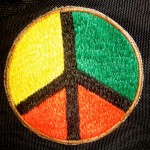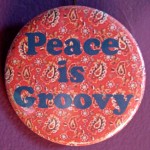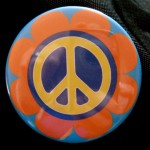
waiting to be freed…
– Photo by Chuck Ketchel
If we understand karma to be unfinished business, that which grounds our flight, then we can understand detachment as the necessary tool to free our incredible lightness of being to find fulfillment in this life and beyond. Detachment unhitches us from the energetic drains that keep us tied to people and situations that impede our freedom. Energetic drains take the form of intense emotional attachments, be they fear and hate or, quite the opposite, unrequited love. Either way, attachments keep us tethered, and, until released, we cannot journey deeper into life.
But what are the nuts and bolts of detachment? Often enough, Jan and I write about the formal process of recapitulation to free and reclaim all the entangled energy knotted in the lives we’ve lived. Love and laughter are tools at the heart of the recapitulation journey.
Prior to his assassination, Gandhi had expressed, “Even if I am killed, I will not give up repeating the names Ram and Rahim, which mean to me the same God. With these names on my lips, I will die cheerfully.” He also said, “If I am to die by the bullet of a madman, I must do so smiling. There must be no anger within me. God must be in my heart and on my lips.”
Rahim also means compassion. When Gandhi was actually assassinated, he raised his hands in front of him, in a common gesture of greeting to his assassin. And he did call out to God, according to some accounts, speaking the words “Ram, Ram.” In speaking these words, and with this final gesture, Gandhi forgave his assassin, leaving this world completely untethered to what his assassin had done to him, but also thanking the man for delivering him to the next stop on his journey.
Jesus similarly cried out to God while on the cross, “Father, forgive them, for they know not what they do.” He also left this world completely untethered to his accusers, who delivered him to his future.
From wherever we come, we land; we move into life on this earth. It’s where we are now. If we turn around we turn to stone and can move no further, according to a common concept. Recapitulation, however, requires us to turn around, but with the intent of removing all the energetic strings that keep us bound in regret, anger, sadness, longing, and hate. In retrieving these energetic strings of self, we can turn to the unfolding awesomeness of continuing our journey untethered.
Buddhist wisdom guides all who leave this world to glance only briefly at the bardos of their discontent and stay focused on the light. To remain attached to the emotional ties of our life, loving or traumatic, forms the seeds of our karma and interrupts our journey to spiritual wholeness and enlightenment. Gandhi was well aware of this, as he faced his assassin in the common greeting of respect, namaste, meaning “I bow to you; I bow to the God within you.”

– Photo by Jan Ketchel
To release emotional attachment to those who harm us frees our karmic load. We are then freed to proceed into new life unburdened by emotional heaviness. Karmic attachment requires us to stay put, until we can free our spirits to move into new life.
The love or compassion that Gandhi and Jesus portrayed transcends the attachments we have to our lives, interrupted as they are by our assassins. Instead, it accepts the reality of our unexpected launching into a different journey. Those that launch us must then grapple with their own karma—for the choice made to act from the dark side. We can extend the love of compassion to them, as they continue their journeys into that karma, and appreciate our own opportunity to free ourselves, at their hand, from attachment to the dark side that would have us stew in powerful emotions. If we look instead to the dark side and send it love—the last thing it wants—it releases its talons from our light being.
Laughter, like love, is equally freeing of energetic bindings. The Shamans of Ancient Mexico discovered that the greatest hook to our energetic selves from the dark side is self-importance. When we are offended by another, or by life circumstances, we are drawn to the seriousness of anger, pain, and resentment. These emotions, though transiently valid and necessary to encounter during recapitulation, are equally capable of keeping us attached to the dark side, for the dark side looks for ways to hook us, to entrap us indefinitely by feeding on the energy of our fixated, negative emotions. We can completely break the chains of these offenses by learning to laugh at ourselves.
We can laugh at our attachment to seriousness. We can laugh at our own human frailty. We can laugh at our tendency to judge the self and other. And we can laugh at the frailty and foolishness of others. If we can find our way to the divine comedy of self and other, we are freed of all karma associated with the injustices we have engaged in and those that have been foist upon us—however serious!

– Photo by Jan Ketchel
Love and laugher are powerful tools that, when genuinely engaged in, free us from the binding attachments that tether our fulfillment to our karmic lives. As we exercise these powerful tools, we offer ourselves the opportunity for new and different outcomes. Love and laugh! Try it, and see what happens!
Loving and laughing,
Chuck



